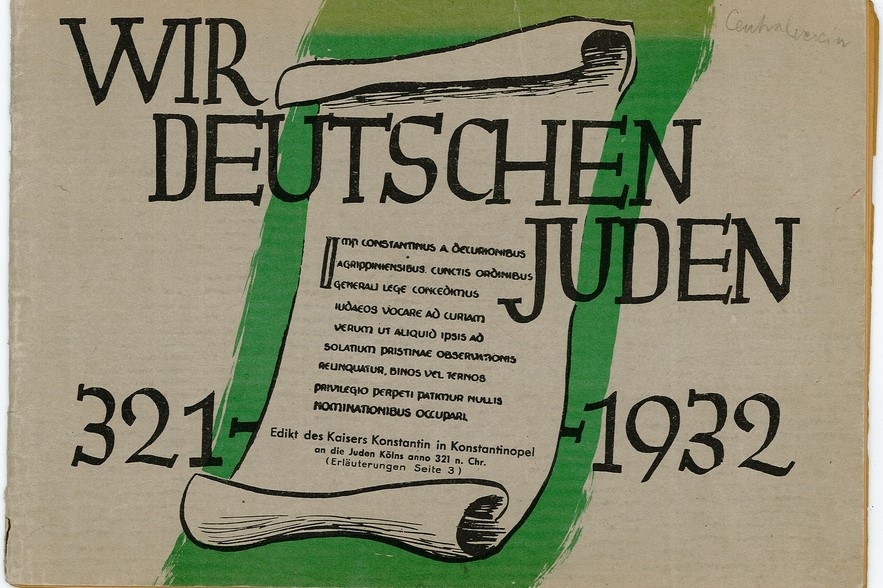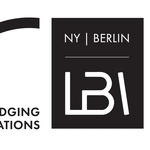Fighting Back – Jewish Responses to Antisemitism
With Michael Brenner and Jane Eisner

Berlin, 1932. LBI Library, DS 141 W525.

- Date/Time
- –
- Venue
- Center for Jewish History (map)
15 W. 16th St.
New York, NY 10011 - Format
- In person
- Admissions
- General: Free
- Cosponsors
Part 3 of the LBI Forum On Antisemitism and Democracy
About the event:
In 1932, Germany’s leading Jewish civil rights organization, the Central Association of German Jews, or Centralverein, published a brochure entitled We German Jews. 321–1932. The dates in the title made explicit reference to the documented presence of Jews in the Roman provinces in the Rhineland for over 16 centuries to refute the antisemitic view that Jews were an alien presence in Germany.
The Centralverein represented the broad middle of German-Jewish society, and since the late-19th century, it had documented and fought antisemitism through various methods – in the courts, through political lobbying, and through publications like We German Jews. Yet each of these defenses against antisemitism had its pitfalls. Court trials often gave antisemites a platform for spreading their propaganda and rarely resulted in significant punishments. Even friendly political parties failed to take strong action out of fear that being perceived as a “Jewish Party” would have negative electoral consequences. And the apologetics typified by the 1932 brochure convinced too few among the public.
Join us when historian Michael Brenner and journalist Jane Eisner will discuss what lessons these Jewish responses to antisemitism offer for today’s world.
About the Panelists:

Michael Brenner holds the chair of Jewish History and Culture at Ludwig Maximilian University in Munich. He is also Distinguished Professor of History and Seymour and Lillian Abensohn Chair in Israel Studies at American University and serves as International President of the Leo Baeck Institute for the Study of German-Jewish History. In 2021 he was the first recipient of the Baron Award for Scholarly Excellence in Research of the Jewish Experience. He is the author of ten books, translated into over a dozen languages. His latest books are In Hitler’s Munich: Jews, the Revolution, and the Rise of Nazism, (Princeton University Press 2022) and In Search of Israel: The History of an Idea (Princeton University Press, 2018).

Jane Eisner is an accomplished journalist, educator, non-profit leader, consultant, and public speaker. She recently completed a multi-year appointment as director of academic affairs at the Graduate School of Journalism at Columbia University, overseeing the Master of Arts program. For more than a decade, she was the Forward’s editor-in-chief, the first woman to hold the position at America’s foremost national Jewish news organization.
About the Forum on Antisemitism and Democracy:
In contemporary discourse around the rise in antisemitism worldwide and antisemitism’s enduring role in antidemocratic political movements, the experience of German-speaking Jews is a frequent reference point. The collapse of Weimar democracy and the antisemitism of the Nazis are indeed profoundly instructive about the danger of unchecked hatred of Jews, but ideally the historical allusions of contemporary pundits would not be the end of an argument, but the beginning of historical investigations. How did German and Austrian Jews perceive antisemitism, and how were they impacted? How did they respond, as individuals and as communities, and how did their responses succeed or fail?
In order to contribute to this discourse, LBI is planning a series of events that will pair a historian and a public intellectual to examine key moments in German-Jewish history between 1914 and 1933 – both on their own terms, and as touchstones for understanding today’s world.
These events will be in person at the Center for Jewish History. In case you cannot make the live events, they will be recorded and subsequently posted online.




